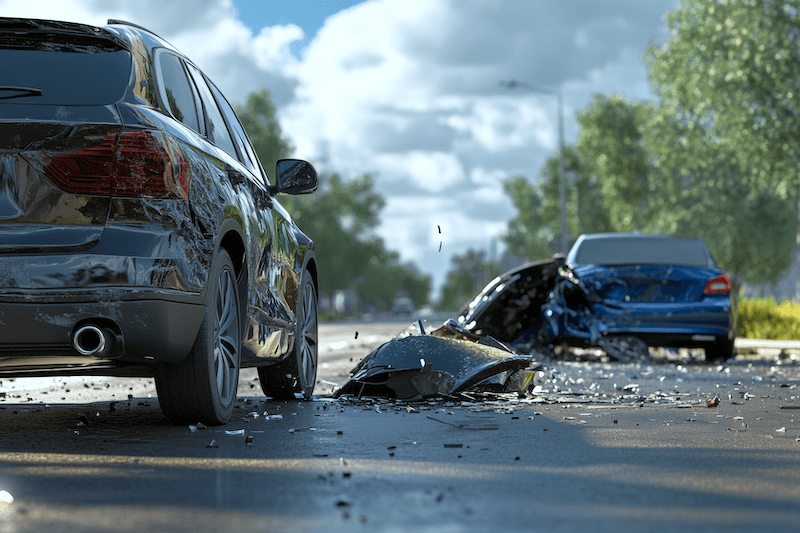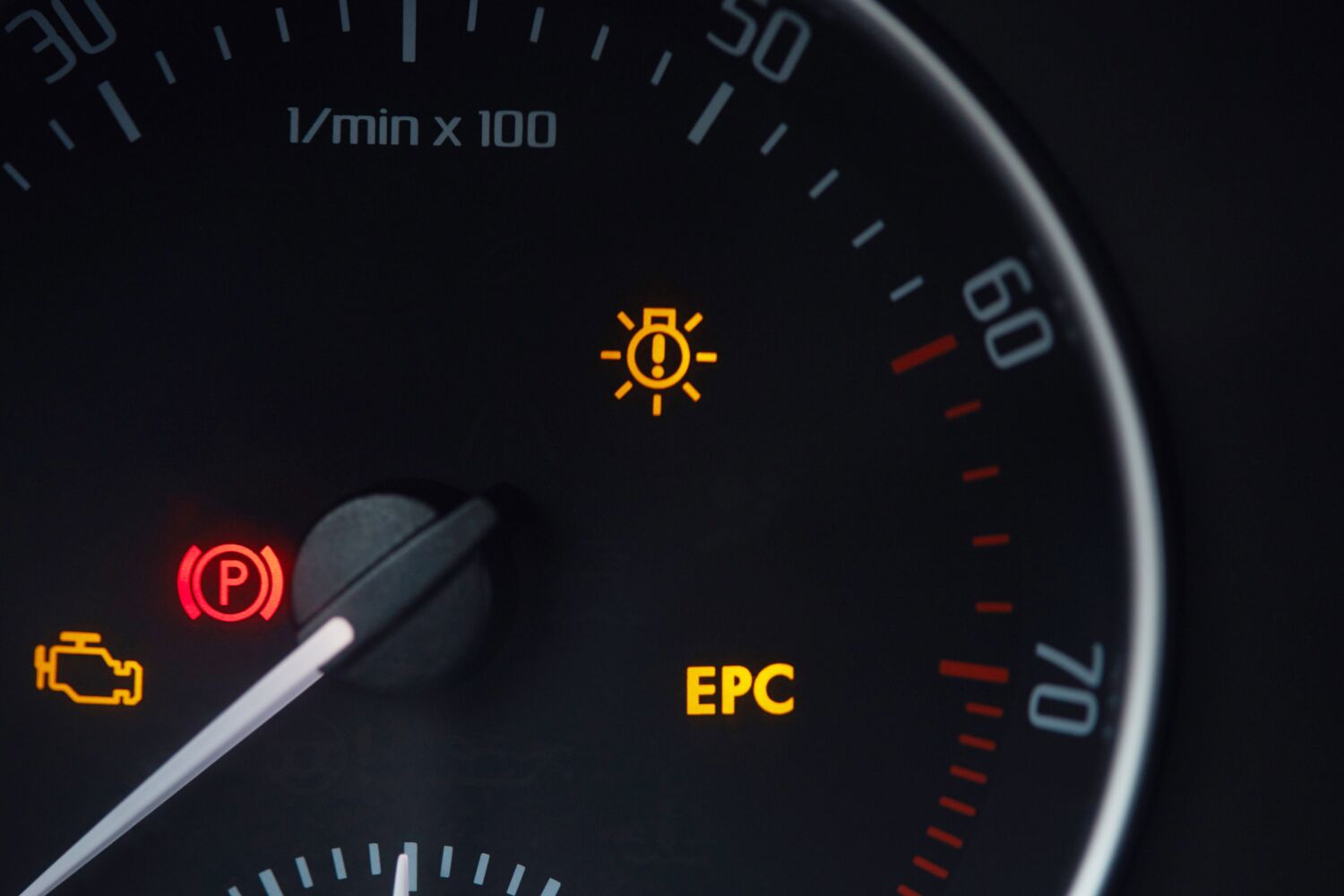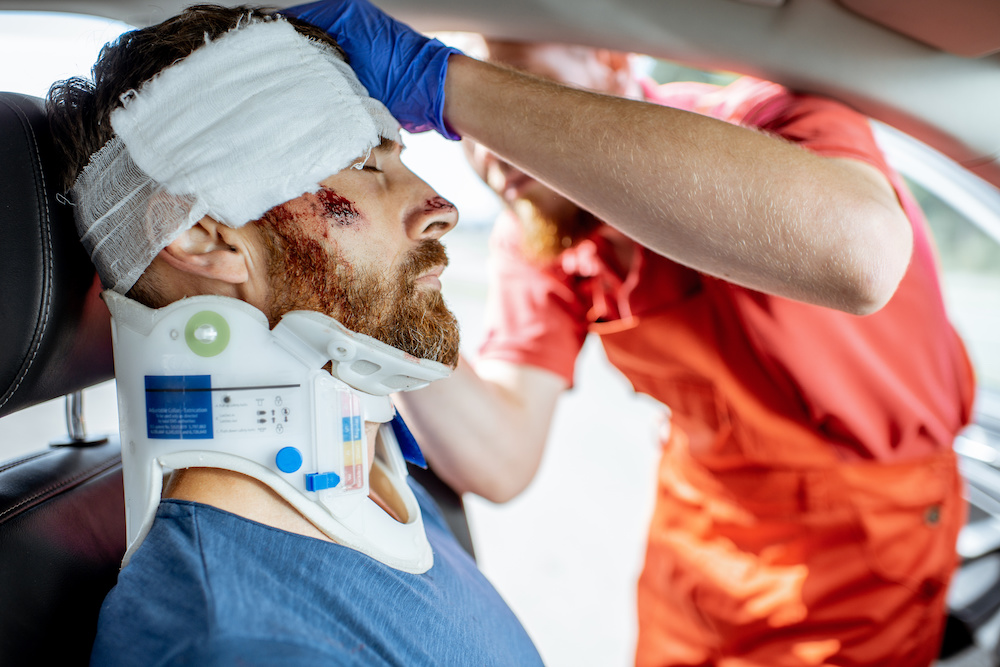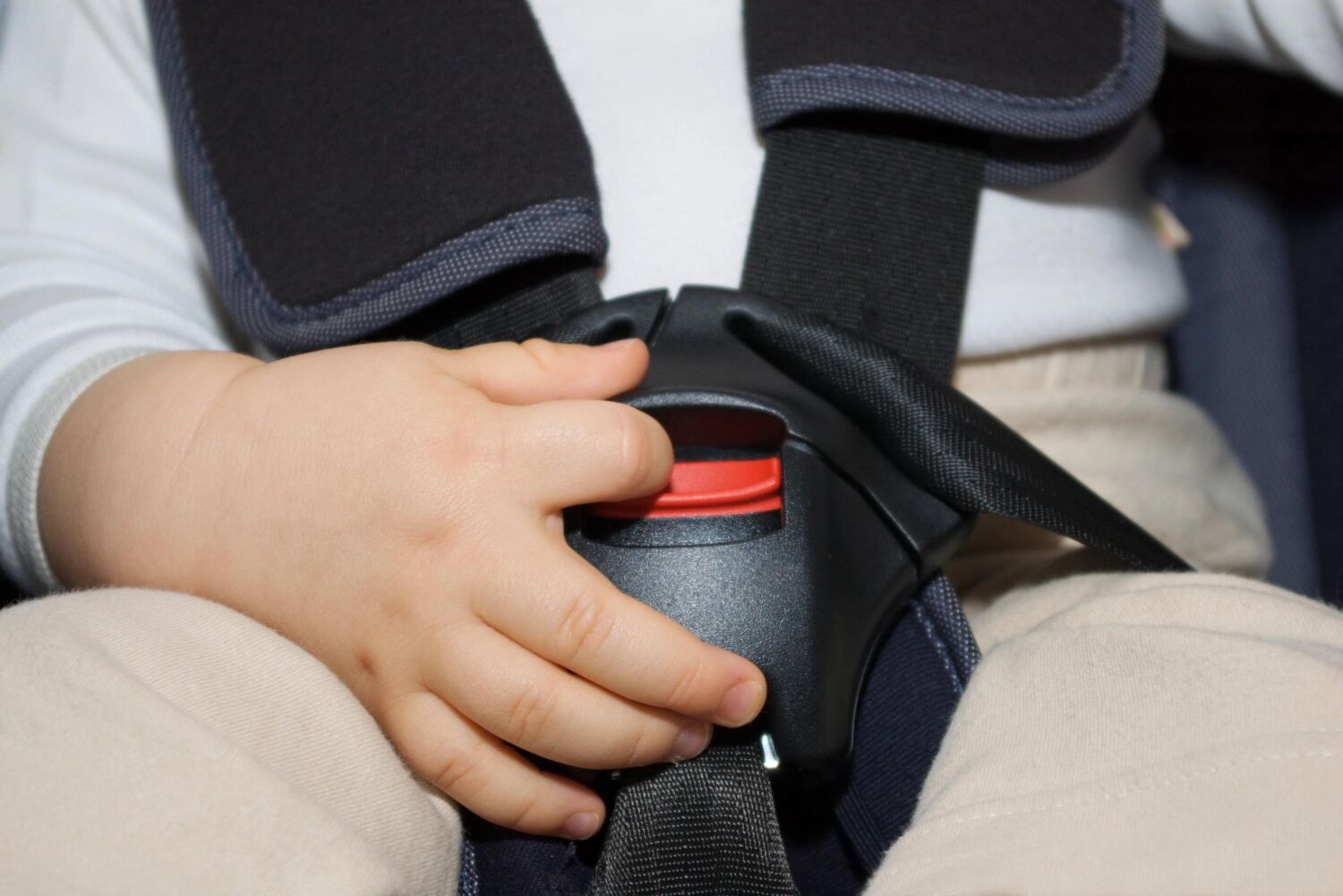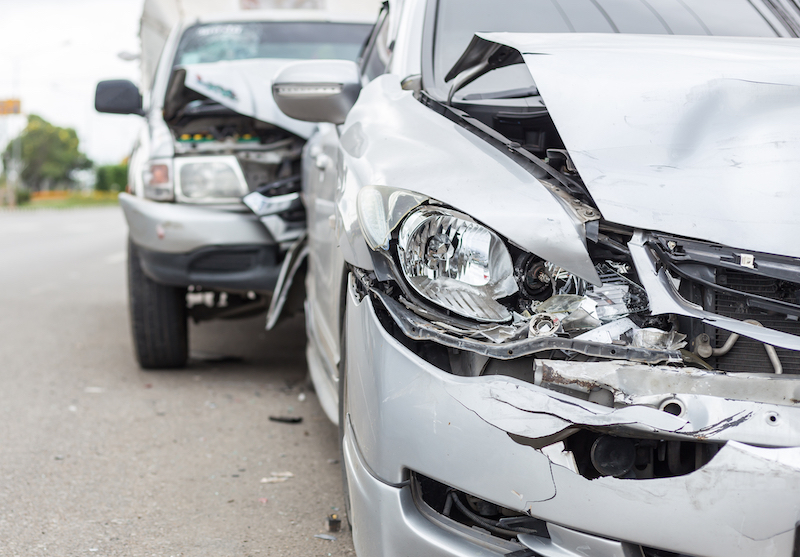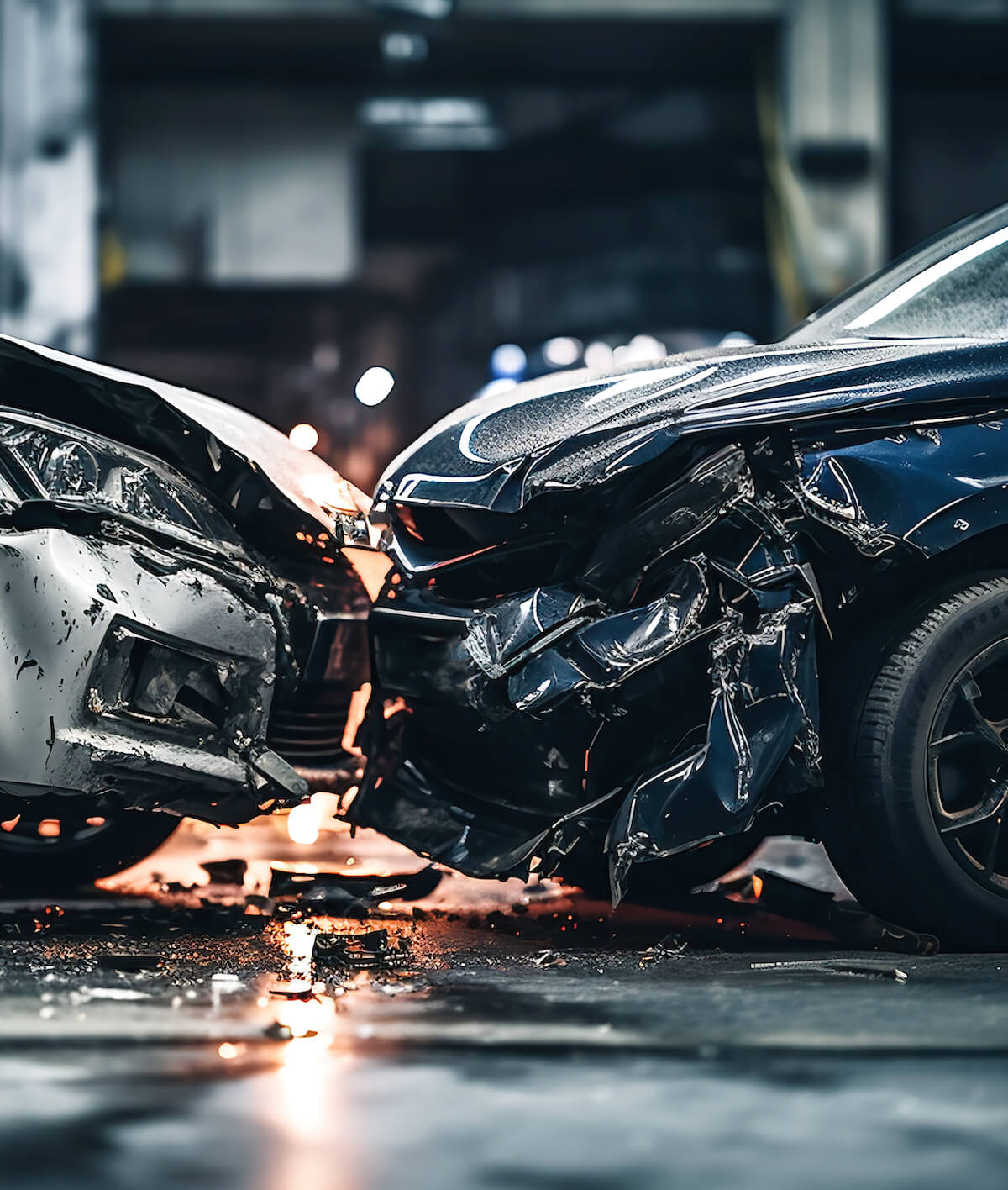Understanding Head Injuries from Car Accidents
If you’ve suffered a head injury in a car accident, you’re not alone. According to the Centers for Disease Control and Prevention (CDC), motor vehicle crashes were the second-leading cause of traumatic brain injuries (TBIs) in the United States.
After you or someone you love suffers a head injury, it’s crucial that you understand the severity of your situation. Our team at Rainwater, Holt & Sexton is here to help you do just that. From mild concussions to severe TBIs, we’ll cover the different types of head injuries, explain the key symptoms to look out for, and help you navigate the next steps.
If you’re ready to secure strong representation after your car accident, our brain injury lawyers will be your advocate. We know how devastating a head injury can be, and we’ll work tirelessly to get you the compensation and justice you deserve, so you can focus your energy on what matters most: healing.
We’re here to help.
Respect
We treat all our clients with the utmost respect.
No fee
Our No Fee Guarantee® means you pay us nothing unless we win your case.
24/7 access
You get access to our legal team anywhere, anytime.
NATIONALLY RESPECTED. LOCALLY TRUSTED.
- Identifying Mild to Severe Head Injuries
- Common Types of Head Injuries from Car Accidents
- When to Seek Medical Attention After a Head Injury
- The Impact of Brain Injuries on Compensation Claims
- Filing a Brain Injury Lawsuit
- Why Hiring an Experienced TBI Attorney Matters
- Case Results
- Rainwater: Your Partner on the Path to Healing
- FAQs: Head Injuries from Car Accidents
- Auto Accident Resources
- Contact Us
Identifying Mild to Severe Head Injuries
If you or a loved one has been in a car accident, it’s important to recognize the typical symptoms of a head injury and seek prompt treatment. Whether your symptoms are minor or major, a medical professional will be able to discuss them with you in detail and offer an official diagnosis.
With that in mind, here’s a breakdown of the signs to look out for.
Mild Head Injuries
A mild traumatic brain injury (or concussion) might not appear serious at first glance, but it shouldn’t be taken lightly. Common symptoms include:
- Headaches
- Dizziness
- Confusion
- Momentary loss of consciousness
- Disorientation or “fogginess”
- Changes in mood
- Disturbance in sleep patterns
It’s crucial not to underestimate these signs. Even though they’re labeled “mild,” they can still have a significant impact on your cognitive functioning and overall well-being.
As the severity of the head injury increases, so do the symptoms. Moderate head injuries might involve:
- Pronounced confusion
- Longer periods of disorientation
- Issues with memory
- Ongoing headaches
- Persistent dizziness
- Balance issues
- Emotional changes, such as heightened irritability or mood swings
A severe traumatic brain injury requires immediate medical attention. Symptoms can be alarming, often including:
- Vomiting
- Seizures
- Severe and persistent headaches
- Slurred speech
- Profound confusion
- Loss of coordination
- Sensory disturbances
- Memory loss
- Changes to personality
Symptoms like these indicate potential damage to the brain and an urgent need for medical intervention. Receiving early treatment can substantially decrease your symptoms in the long run and receiving a formal medical diagnosis will strengthen your car accident claim. Insurance companies will not pay you what you need to recover without medical documentation of your injury, so it’s crucial that you seek medical assistance right away.
Common Types of Head Injuries from Car Accidents
Different head injuries have different causes, symptoms, and long-term effects. While no two head injuries are quite the same, understanding these different types of injuries can help you navigate the aftermath of a car crash.
A concussion occurs when the brain experiences a sudden jolt or impact. During a car accident, it might happen when the head strikes an object like the steering wheel or windshield, resulting in whiplash.
Immediately after a car accident, you might know you’ve hurt your head. Sometimes, though, it can take a while for concussion symptoms to appear. Common signs include headaches, dizziness, sensitivity to light and noise, memory problems, and difficulty concentrating. Emotional changes, such as increased irritability or anxiety, can also occur.
Most concussion victims recover on their own within weeks. However, concussion symptoms sometimes linger, making it impossible to return to work or resume your daily life.
Contusions are bruises that form on the brain’s surface due to the impact of the skull against the brain during an accident. Compared to concussions, they’re more likely to cause localized brain damage.
Diffuse axonal injuries are more severe and involve the stretching and tearing of nerve fibers within the brain. These injuries often result from a rapid change in momentum, which is common in car accidents.
Symptoms of these head injuries can range from mild cognitive impairments to life-threatening comas. Severe head injuries can lead to a lifetime of cognitive and physical limitations and disabilities.
Penetration injuries occur when a foreign object, such as glass or metal, penetrates the skull and directly damages the brain tissue. These injuries are particularly severe and require immediate medical attention.
In a coup-contrecoup injury, the brain hits both sides of the skull due to the force of impact. This double impact can cause extensive damage and a handful of frightening symptoms, including seizures, loss of consciousness, and memory deficits.
Even seemingly minor injuries can significantly impact your quality of life and lead to permanent impairment. If you suspect a head injury, no matter how mild it may seem, seek medical help immediately.
When to Seek Medical Attention After a Head Injury
After a car accident, your safety and well-being should always be the top priority. Even if you believe you’re uninjured after a crash, you should still seek medical attention.
The adrenaline from the crash can mask injuries, especially head injuries. As the swelling in the brain worsens, you might experience symptoms you didn’t feel immediately after the crash. A medical professional can conduct a full evaluation of your health and create a personalized treatment plan.
Here are the symptoms you should be on the lookout for, both in the direct aftermath of the crash and during your recovery.
Immediate Symptoms
If you experience any of the following after a car accident, it’s essential to seek emergency medical care:
- Loss of consciousness
- Severe headaches
- Vomiting or nausea
- Uneven pupils
- Seizures
- Slurred speech or confusion
- Weakness or numbness
Long-Term Monitoring and Care
Even if you don’t experience severe symptoms right away, monitoring your health closely in the aftermath of a head injury is vital. Some symptoms might not manifest until later, and the gradual development of issues is not uncommon.
Watch for mild headaches that persist or worsen as time goes on. If they’re not improving, you should consult a doctor. Likewise, pay attention if you have difficulty concentrating, memory problems, or changes in sleep patterns, such as insomnia. Even changes in mood, such as irritability, can indicate ongoing brain issues.
If you notice any of these symptoms over time or have concerns about your head injury, it’s important to consult a medical professional for further evaluation. Remember: Early detection and intervention can significantly enhance your recovery.
Injured in a car accident?
The Impact of Brain Injuries on Compensation Claims
In car accident cases involving head injuries, the severity of the injury can have a substantial influence on the compensation awarded to the victim. No matter what, though, you should receive a just settlement and have a strong advocate at your side.
Whether you’re unable to return to work or simply having trouble enjoying your favorite hobbies, you deserve compensation that accurately reflects your situation. Our brain injury lawyers at Rainwater, Holt & Sexton will listen carefully to your story and make sure that we get the full picture — and you get the damages you deserve.
Here’s a look at the two main types of damages we’ll pursue.
Economic Damages
When determining compensation for head injuries, economic damages play a crucial role. These are the tangible, measurable financial losses that result from the injury. Common economic damages in brain injury cases include:
- Medical bills
- Rehabilitation expenses
- Long-term care
- Lost wages, income, and benefits
- Property damage
- Future medical expenses
- Loss of future earnings
Your attorney will consider all damages you suffered and will continue to suffer in the future before determining how much compensation you need. In cases of severe brain injuries, you may need long-term medical care, medications, and assistive devices. Your attorney can seek to recover these costs in your final settlement or award.
Non-Economic Damages
Non-economic damages encompass the emotional and psychological toll that head injuries can take on a person’s life. While these damages are harder to quantify, they are equally important and contribute significantly to overall compensation. They can include:
- Pain and suffering
- Mental anguish
- Loss of enjoyment in life
- Loss of consortium
- Permanent disabilities
The type and severity of the head injury, the extent of medical treatment required, and the long-term effects on your life all influence the compensation amount. Our lawyers understand how to evaluate these factors and build a strong case to ensure you receive fair compensation.
Filing a Brain Injury Lawsuit
To help you navigate the complexities of a lawsuit and push back against aggressive insurance companies, you should consider hiring an experienced brain injury lawyer. They’ll take care of the details and deadlines so you can focus on your recovery.
Role of Evidence in Brain Injury Claims
In brain injury claims and lawsuits, evidence plays a critical role in establishing the extent of the injury and its impact on your life. Gathering the right evidence is essential to building a strong case. Your attorney can help you gather and present this evidence to the insurance company or court. This evidence may include:
- Comprehensive medical records that detail your diagnosis, treatment plan, and ongoing care, offering a clear picture of the severity of the injury and its impact on your life.
- MRIs, CT scans, and other imaging that provide visual evidence of the brain injury, helping to demonstrate the physical damage sustained.
- Expert medical opinions to help explain your injury and its long-term consequences to judges and juries who might not be familiar with the complexities of brain injuries.
- Eyewitness testimony to establish liability and back up your version of events.
Why Hiring an Experienced TBI Attorney Matters
Brain injuries can manifest in unique ways. An attorney with experience handling brain injury cases is familiar with the various symptoms, long-term effects, and challenges that victims face, enabling them to build a comprehensive case.
Because of their experience, a head injury lawyer will also recognize the full spectrum of damages brain injuries can cause, from economic to non-economic losses. They can ensure that you’re compensated for current expenses, future needs, and ongoing emotional impact.
Few injury victims realize that personal injury attorneys often have networks of medical experts who can provide testimony and validation of the severity and impact of your injury, bolstering your case. This can help bolster your case so you get maximum compensation to help you recover and rebuild your life after a serious accident.
Why Hiring an Experienced TBI Attorney Matters
Brain injuries can manifest in unique ways. An attorney with experience handling brain injury cases is familiar with the various symptoms, long-term effects, and challenges that victims face, enabling them to build a comprehensive case.
Because of their experience, a head injury lawyer will also recognize the full spectrum of damages brain injuries can cause, from economic to non-economic losses. They can ensure that you’re compensated for current expenses, future needs, and ongoing emotional impact.
Few injury victims realize that personal injury attorneys often have networks of medical experts who can provide testimony and validation of the severity and impact of your injury, bolstering your case. This can help bolster your case so you get maximum compensation to help you recover and rebuild your life after a serious accident
FAQs: Head Injuries from Car Accidents
Question: What are the early signs I might have sustained a head injury after a car accident?
Answer: Early signs of a head injury can include headaches, dizziness, blurred vision, nausea, and confusion. Even if your symptoms are mild, seek medical attention promptly after an accident. Early medical treatment is the key to making a better recovery.
Question: How do doctors diagnose the severity of a head injury?
Answer: Doctors use a combination of diagnostic tools to assess head injuries, including CT scans, MRIS, and neurological exams. These tools help them determine the type of injury you suffered and the best course of treatment.
Question: Can a mild head injury from a car accident lead to long-term complications?
Answer: Yes, even mild head injuries can have long-term consequences. You could develop a condition called post-concussion syndrome, which leads to months of persistent headaches, memory problems, and changes in mood or behavior.
Question: How will a head injury affect my car accident claim or lawsuit?
Answer: The severity of a head injury can significantly impact your car accident claim or lawsuit. Strong medical documentation is crucial in demonstrating the extent of your injuries and their impact on your life. Both economic and non-economic damages, such as medical bills, lost wages, and pain and suffering, are directly influenced by the severity of your head injury.
Car Accident Injury Law Resources















